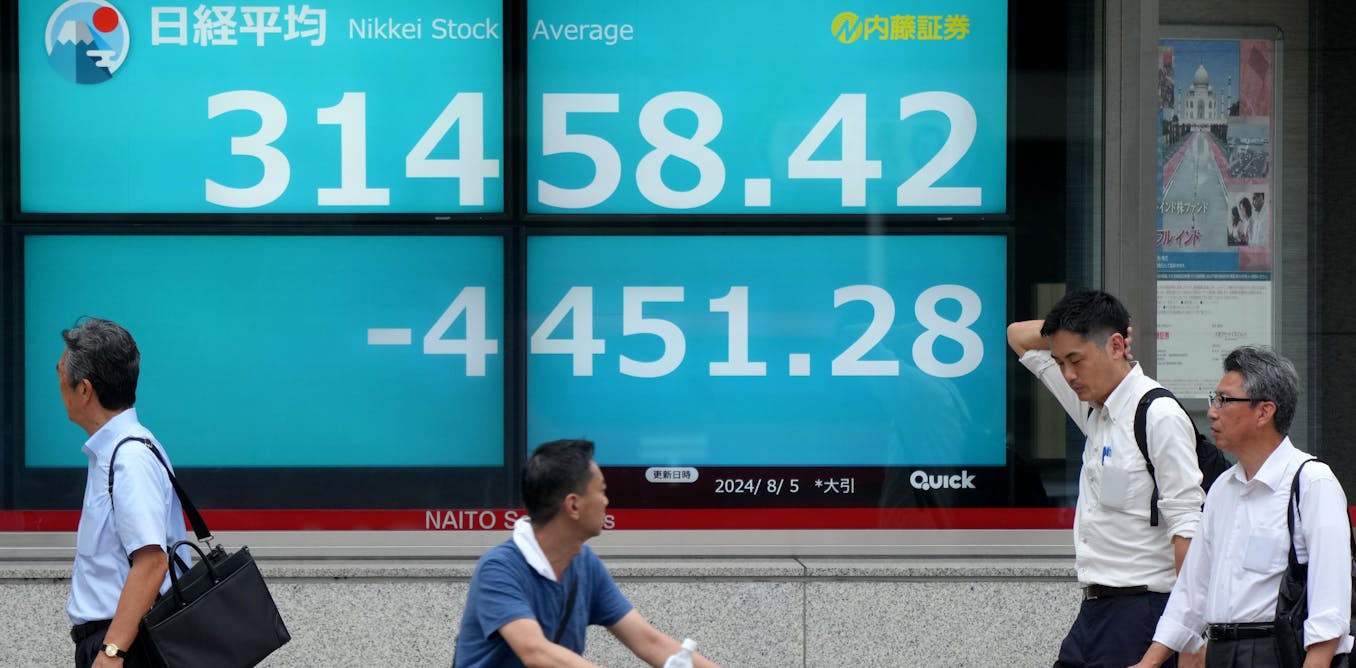Asian markets declined on Tuesday as renewed U.S. tariffs under former President Donald Trump fueled risk-off sentiment. A holiday in Japan kept trading volumes low, while U.S. stock index futures also slipped during Asian hours.
Investors remained cautious ahead of the U.S. consumer price index (CPI) data set for release on Wednesday, which could influence the Federal Reserve’s rate outlook. The latest tariffs on aluminum and steel, along with existing levies on Chinese imports, intensified concerns over escalating trade tensions, potentially disrupting supply chains and slowing economic growth.
China’s Shanghai Composite Index fell 0.5%, while the CSI 300 lost 0.7%. Hong Kong’s Hang Seng Index dropped 0.7% after a recent rally driven by optimism in DeepSeek AI technology stocks. The Philippines' PSEi Composite Index slid more than 1%, Singapore's Straits Times Index lost 0.5%, and Indonesia’s Jakarta Composite fell 0.6%. India's Nifty 50 Futures edged down 0.1%.
However, South Korea’s KOSPI bucked the trend, gaining 0.5%. Australia’s S&P/ASX 200 remained mostly unchanged, as weak consumer sentiment persisted despite expectations of an interest rate cut by the Reserve Bank of Australia (RBA).
A survey by Westpac revealed that Australian households continued to feel financial pressure despite growing bets on a rate cut at the RBA’s February 17–18 meeting. Economists expect a 25-basis-point reduction as inflation nears the central bank’s target faster than anticipated.
With global markets reacting to trade tensions and monetary policy signals, investors are bracing for key economic data that could impact future rate decisions.



 Global Markets Slide as AI, Crypto, and Precious Metals Face Heightened Volatility
Global Markets Slide as AI, Crypto, and Precious Metals Face Heightened Volatility  Asian Stocks Slip as Tech Rout Deepens, Japan Steadies Ahead of Election
Asian Stocks Slip as Tech Rout Deepens, Japan Steadies Ahead of Election  Trump’s Inflation Claims Clash With Voters’ Cost-of-Living Reality
Trump’s Inflation Claims Clash With Voters’ Cost-of-Living Reality  Dow Hits 50,000 as U.S. Stocks Stage Strong Rebound Amid AI Volatility
Dow Hits 50,000 as U.S. Stocks Stage Strong Rebound Amid AI Volatility  Gold and Silver Prices Rebound After Volatile Week Triggered by Fed Nomination
Gold and Silver Prices Rebound After Volatile Week Triggered by Fed Nomination  Russian Stocks End Mixed as MOEX Index Closes Flat Amid Commodity Strength
Russian Stocks End Mixed as MOEX Index Closes Flat Amid Commodity Strength  South Africa Eyes ECB Repo Lines as Inflation Eases and Rate Cuts Loom
South Africa Eyes ECB Repo Lines as Inflation Eases and Rate Cuts Loom  Thailand Inflation Remains Negative for 10th Straight Month in January
Thailand Inflation Remains Negative for 10th Straight Month in January  Trump Endorses Japan’s Sanae Takaichi Ahead of Crucial Election Amid Market and China Tensions
Trump Endorses Japan’s Sanae Takaichi Ahead of Crucial Election Amid Market and China Tensions  Trump Lifts 25% Tariff on Indian Goods in Strategic U.S.–India Trade and Energy Deal
Trump Lifts 25% Tariff on Indian Goods in Strategic U.S.–India Trade and Energy Deal  Gold Prices Slide Below $5,000 as Strong Dollar and Central Bank Outlook Weigh on Metals
Gold Prices Slide Below $5,000 as Strong Dollar and Central Bank Outlook Weigh on Metals  Singapore Budget 2026 Set for Fiscal Prudence as Growth Remains Resilient
Singapore Budget 2026 Set for Fiscal Prudence as Growth Remains Resilient  Japanese Pharmaceutical Stocks Slide as TrumpRx.gov Launch Sparks Market Concerns
Japanese Pharmaceutical Stocks Slide as TrumpRx.gov Launch Sparks Market Concerns  Dollar Near Two-Week High as Stock Rout, AI Concerns and Global Events Drive Market Volatility
Dollar Near Two-Week High as Stock Rout, AI Concerns and Global Events Drive Market Volatility  Silver Prices Plunge in Asian Trade as Dollar Strength Triggers Fresh Precious Metals Sell-Off
Silver Prices Plunge in Asian Trade as Dollar Strength Triggers Fresh Precious Metals Sell-Off  RBI Holds Repo Rate at 5.25% as India’s Growth Outlook Strengthens After U.S. Trade Deal
RBI Holds Repo Rate at 5.25% as India’s Growth Outlook Strengthens After U.S. Trade Deal  Fed Governor Lisa Cook Warns Inflation Risks Remain as Rates Stay Steady
Fed Governor Lisa Cook Warns Inflation Risks Remain as Rates Stay Steady 































